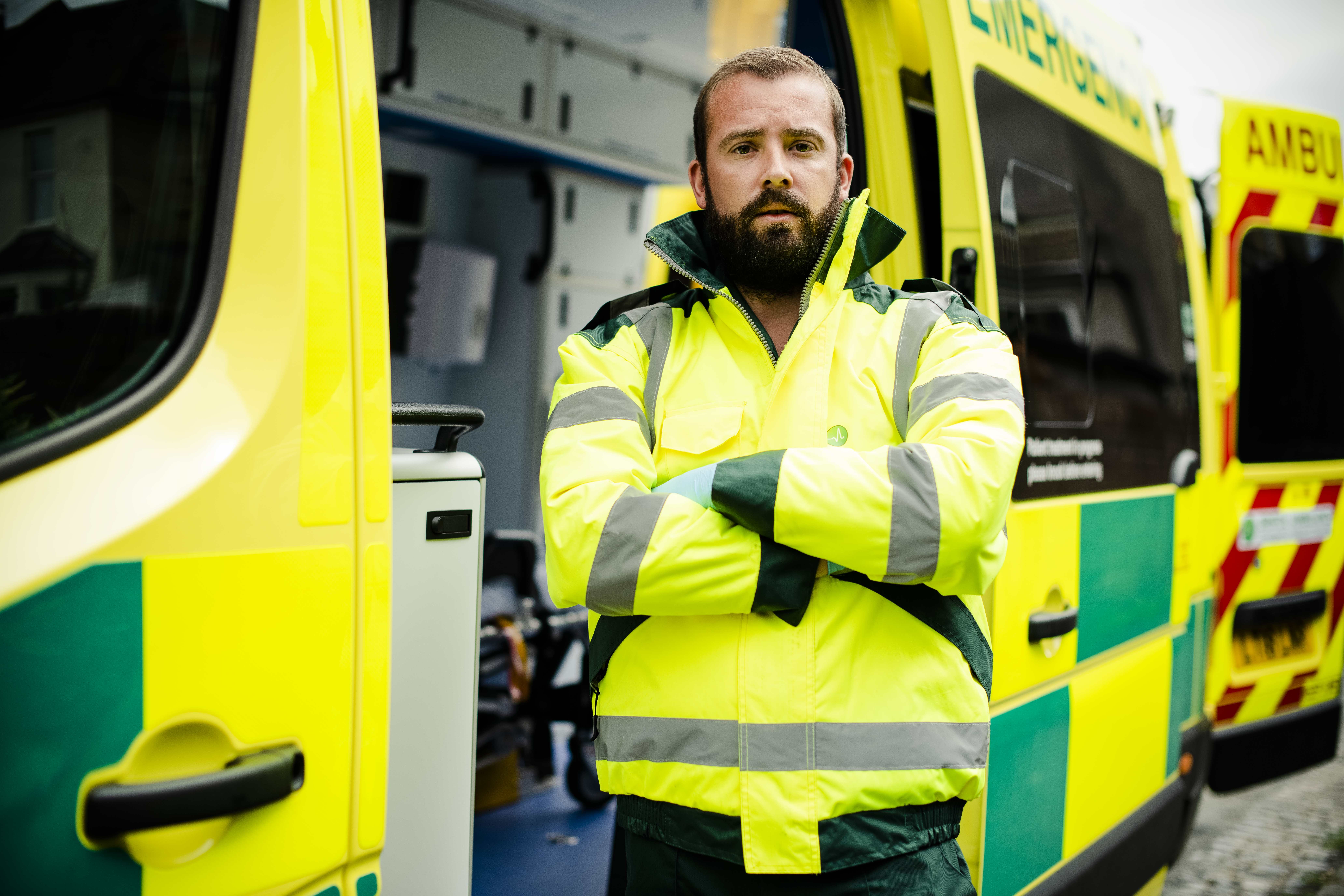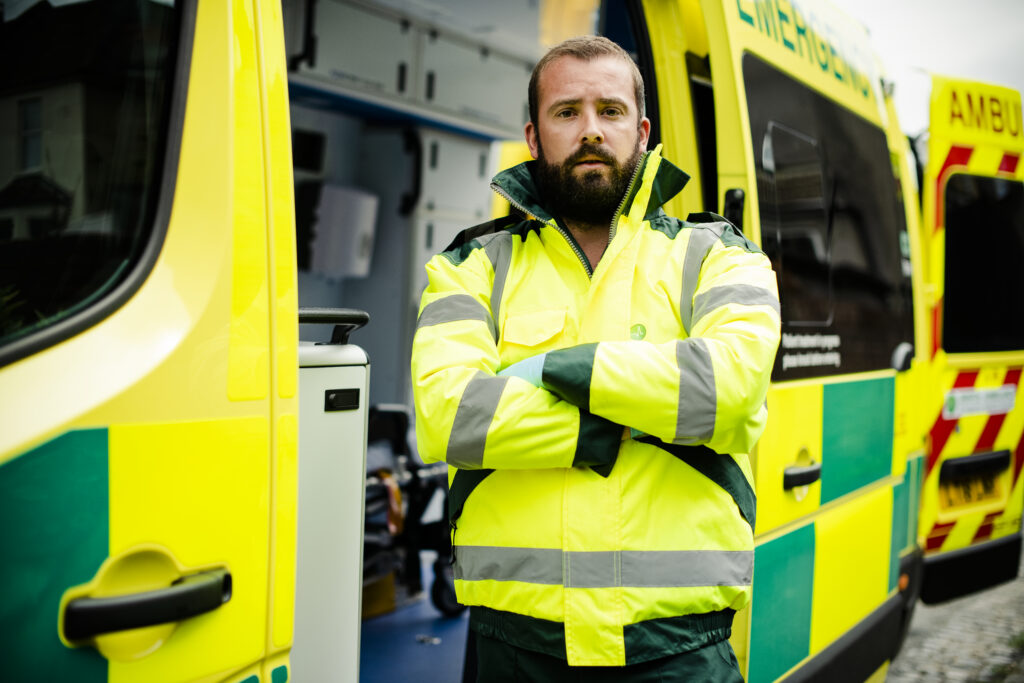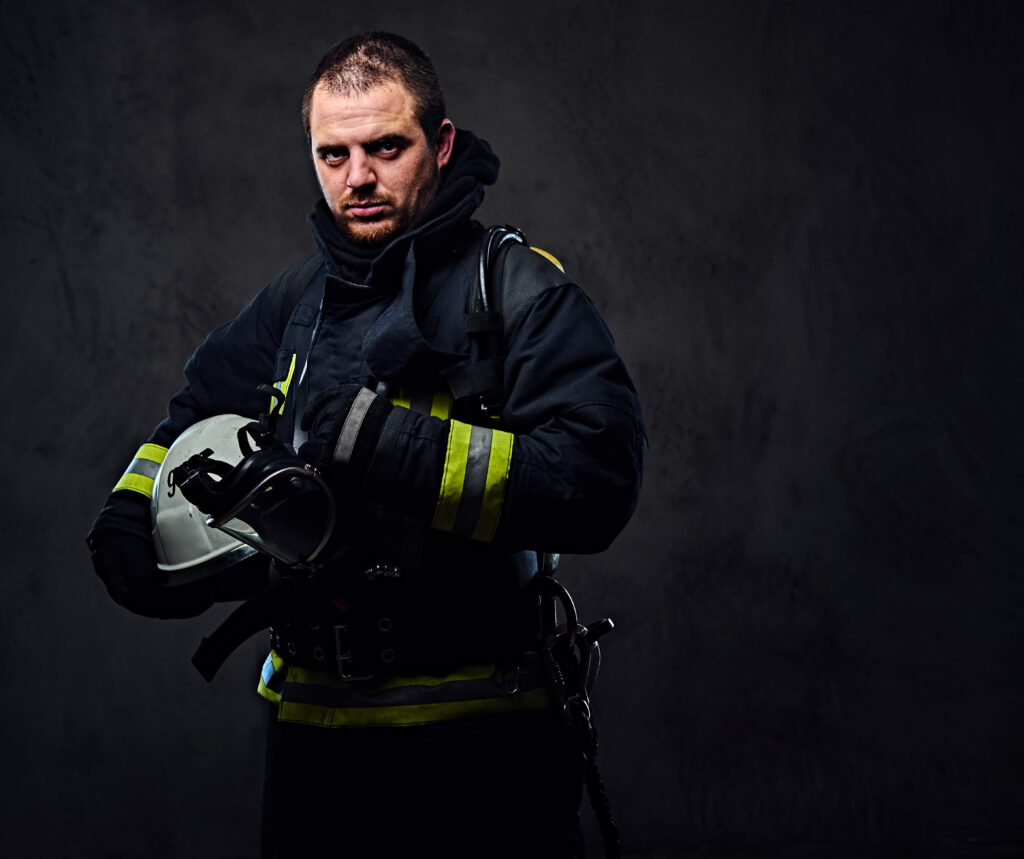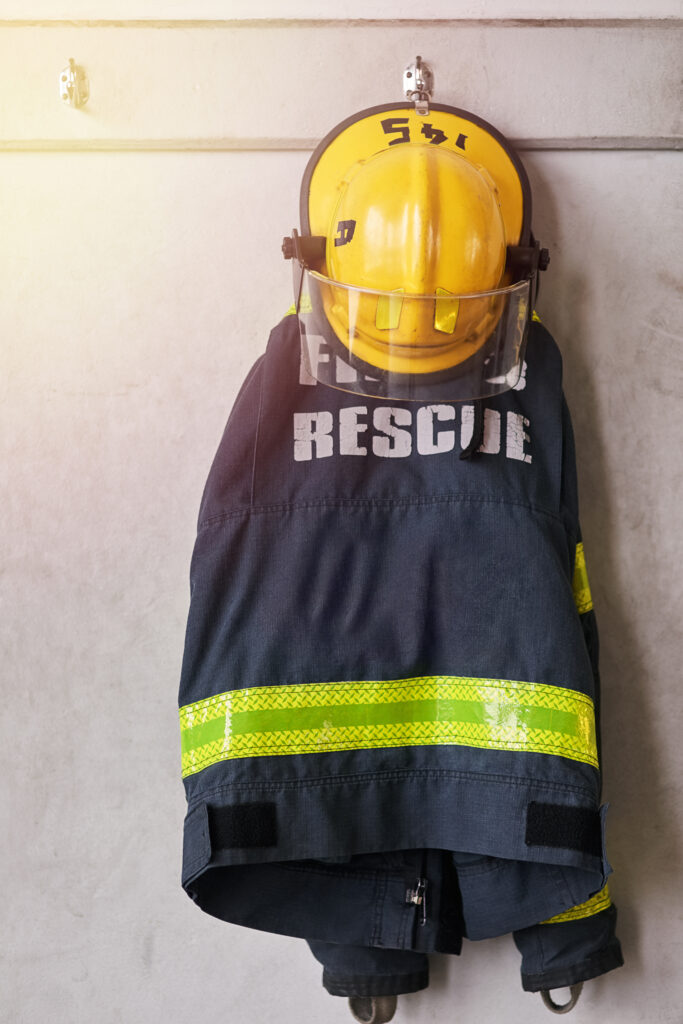Recognizing Physical Signs of Mental Health Issues in First Responders
3/6/2025 by Markie Bryant

First responders, such as firefighters, paramedics, and police officers, face unique challenges that can impact their mental health. The difficult situations they encounter daily can lead to various mental health issues, which often show up as physical symptoms. Recognizing these signs early is crucial for getting the help needed.
Key Takeaways
- First responders often show physical symptoms like chronic fatigue, headaches, and digestive problems when dealing with mental health issues.
- Psychological signs such as mood swings, isolation, and trouble concentrating are also common among first responders.
- Risk factors like exposure to traumatic events and high-pressure work environments increase the likelihood of mental health problems.
- Barriers such as stigma and fear of job loss prevent many first responders from seeking the help they need.
- Effective support strategies include professional counseling, peer support programs, and resilience training.
Common Physical Symptoms of Mental Health Issues in First Responders
First responders often face intense and traumatic situations, which can lead to various physical manifestations of mental health issues. Recognizing these symptoms early can be crucial for timely intervention and support.
Chronic Fatigue and Exhaustion
One of the most common physical symptoms is chronic fatigue. First responders may feel constantly tired, even after getting enough sleep. This persistent exhaustion can affect their ability to perform their duties effectively.
Frequent Headaches and Migraines
Frequent headaches or migraines are another sign. These can be triggered by the stress and anxiety that come with the job. It’s important to note that these headaches are not just occasional but can become a regular occurrence.
Digestive Issues and Stomach Problems
Stress and anxiety can also lead to digestive issues. First responders might experience stomach problems like nausea, diarrhea, or even chronic conditions like irritable bowel syndrome (IBS). These symptoms can be a direct result of the mental strain they are under.
Sleep Disturbances and Insomnia
Sleep disturbances are a significant concern. Many first responders struggle with insomnia or have trouble staying asleep. This lack of quality sleep can exacerbate other physical and mental health issues.
Recognizing these physical symptoms is the first step towards addressing the underlying mental health issues. Early intervention can make a significant difference in the well-being of first responders.
Psychological and Emotional Indicators

Mood Swings and Behavioral Changes
First responders may experience pronounced mood swings and sudden changes in behavior. They might become more irritable or angry, snapping at friends or loved ones more often. This irritability can be a sign that things are starting to get under their skin more than usual.
Feelings of Disconnection and Isolation
Another common indicator is a feeling of disconnection or isolation. First responders might start to withdraw from social interactions, preferring to be alone rather than with others. This social withdrawal can be a red flag that they are struggling emotionally.
Loss of Interest in Enjoyable Activities
A noticeable loss of interest in activities that were once enjoyable is also a significant indicator. If first responders no longer find joy in hobbies or activities they used to love, it may be time to reach out for help.
Difficulty Concentrating and Making Decisions
Mental health issues can also manifest as difficulty concentrating or making decisions. First responders might find it hard to focus on tasks or make choices, which can impact their performance at work and in their personal lives.
Risk Factors Contributing to Mental Health Issues

Exposure to Traumatic Events
First responders often face prolonged exposure to traumatic events. This can include dealing with serious injuries or bodies of the dead, which increases the likelihood of developing PTSD, depression, and anxiety. The constant exposure to such events can lead to significant mental health challenges.
High-Pressure Work Environments
The nature of first responders’ work involves high-pressure situations. Long shifts, unclear expectations, and the need to make quick decisions can contribute to stress and burnout. This high-pressure environment can exacerbate mental health issues.
Lack of Support and Resources
A lack of support and resources can make it difficult for first responders to manage their mental health. Limited access to mental health resources and a lack of control over their work environment can increase stress levels and contribute to mental health problems.
Poor Work-Life Balance
Maintaining a healthy work-life balance is challenging for first responders. The demands of the job often lead to long hours and irregular schedules, making it hard to find time for personal life and self-care. This imbalance can negatively impact mental health.
Addressing these risk factors is crucial for the well-being of first responders. Providing adequate support and resources can help mitigate the impact of these challenges on their mental health.
Barriers to Seeking Mental Health Support

Stigma and Cultural Norms
First responders often face a stigma when it comes to seeking mental health support. The culture within emergency services values toughness and resilience, making it hard for individuals to admit they need help. This stigma can prevent them from reaching out for the support they need.
Fear of Professional Repercussions
Many first responders worry about the potential negative impacts on their careers if they seek mental health support. They fear being judged by their peers or facing professional consequences, such as being demoted or fired. This fear can be a significant barrier to getting the help they need.
Limited Access to Specialized Care
There is often a lack of mental health resources specifically tailored to the unique experiences of first responders. While general mental health services are available, the specialized nature of first responder trauma requires practitioners with specific training and understanding, which can be hard to find.
Lack of Awareness and Education
Many first responders may not be fully aware of the mental health resources available to them. Additionally, there may be a lack of education on the importance of mental health and how to seek help. Increasing awareness and education can help break down these barriers and encourage more first responders to seek the support they need.
Effective Support Strategies for First Responders

Professional Counseling and Therapy
Professional counseling and therapy are essential for first responders dealing with mental health issues. Access to mental health professionals who understand the unique challenges faced by first responders can make a significant difference. Regular therapy sessions can help in managing symptoms of PTSD, anxiety, and depression.
Peer Support Programs
Peer support programs provide a safe space for first responders to share their experiences and coping strategies. These programs can reduce feelings of isolation and stigma, making it easier for individuals to seek help. Peer support can also foster a sense of community and understanding among first responders.
Resilience and Stress Management Training
Training in resilience and stress management equips first responders with the tools they need to handle the pressures of their job. This includes techniques like mindfulness, relaxation exercises, and stress reduction strategies. Such training can help in building mental toughness and improving overall well-being.
Access to Mental Health Resources
Ensuring that first responders have easy access to mental health resources is crucial. This includes providing information about available services, hotlines, and support groups. Access to resources can empower first responders to take proactive steps in managing their mental health.
Self-Care Practices for Maintaining Mental Health

Importance of Adequate Sleep and Nutrition
Getting enough sleep and eating well are key to staying healthy. Adequate sleep helps your body recover, while good nutrition fuels your daily activities. Aim for a balanced diet and try to get 7-9 hours of sleep each night.
Regular Physical Activity and Exercise
Exercise is not just good for your body but also for your mind. It can help reduce stress and improve your mood. Try to include activities like walking, running, or even yoga in your routine.
Mindfulness and Relaxation Techniques
Practicing mindfulness can help you stay calm and focused. Techniques like deep breathing, meditation, and even simple relaxation exercises can make a big difference. Find what works best for you and make it a habit.
Building a Strong Support Network
Having people you can talk to is very important. Whether it’s family, friends, or colleagues, a strong support network can help you feel connected and less isolated. Don’t hesitate to reach out when you need to talk.
Remember, taking care of yourself is not a luxury; it’s a necessity. Make self-care a priority to maintain your mental health.
Role of Emergency Service Organizations in Mental Health

Implementing Mental Health Policies
Emergency service organizations must implement mental health policies that prioritize the well-being of their staff. These policies should include regular mental health screenings, access to counseling services, and clear procedures for seeking help. By fostering a culture of openness and support, organizations can better address the mental health needs of their employees.
Providing Training and Education
Training and education are crucial in helping first responders recognize and manage mental health issues. Organizations should offer training programs that cover stress management, resilience building, and recognizing signs of mental distress. This not only equips first responders with the tools they need but also helps reduce the stigma associated with seeking help.
Creating a Supportive Work Environment
A supportive work environment is essential for the mental health of first responders. This includes having peer support programs where colleagues can share their experiences and coping strategies. Additionally, supervisors should be trained to recognize signs of mental health issues and provide appropriate support.
Encouraging Open Communication
Open communication about mental health should be encouraged within emergency service organizations. This means creating safe spaces where first responders can talk about their experiences without fear of judgment or professional repercussions. Regular check-ins and mental health workshops can also help in maintaining an open dialogue about mental health.
It’s important not to overlook mental health in emergency preparedness. By fostering a culture of openness and support, organizations can better address the mental health needs of their employees.
Conclusion
First responders face unique challenges that can take a toll on their mental health. Recognizing the physical signs of mental health issues is crucial for early intervention and support. By understanding the symptoms and risk factors, first responders and their organizations can take proactive steps to address these issues. It’s important to remember that seeking help is not a sign of weakness but a step towards maintaining overall well-being. With the right resources and support, first responders can continue to serve their communities while also taking care of their mental health.
Frequently Asked Questions
What are the common signs of mental health issues in first responders?
Common signs include feeling very tired, having headaches, stomach problems, trouble sleeping, mood swings, feeling alone, losing interest in fun activities, and finding it hard to focus.
What risk factors make first responders more likely to have mental health issues?
First responders face many risks like seeing traumatic events, working in high-pressure settings, not having enough support, and having a poor balance between work and personal life.
Why might first responders hesitate to seek mental health help?
They might worry about being judged, fear losing their job, have limited access to the right care, or simply not know enough about mental health.
How can emergency service organizations support the mental health of first responders?
Organizations can help by making mental health policies, offering training, creating a supportive workplace, and encouraging open talks about mental health.
What are some effective support strategies for first responders?
Good strategies include professional counseling, peer support programs, stress management training, and providing access to mental health resources.
What self-care practices can help first responders maintain their mental health?
First responders should get enough sleep, eat well, exercise regularly, practice mindfulness, and build a strong support network.